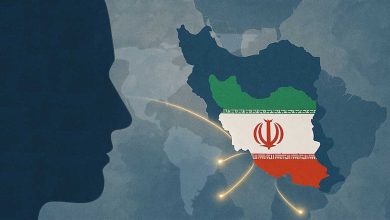Energy Policy and International Relations: The Impact of Energy Resources on Foreign Policy

Energy policy is one of the most important determining factors in international relations. Countries with vast energy resources, especially oil and gas, wield significant influence in geopolitical dynamics and use these resources as tools to exert pressure, influence economic equations, and consolidate their positions in global affairs. On the other hand, energy-consuming countries adopt various strategies to ensure their energy security, such as diversifying supply sources, investing in alternative energies, and signing long-term contracts with producers. These dynamics have led to the formation of strategic alliances, geopolitical rivalries, and even international conflicts, directly influencing foreign policies. The importance of this issue becomes particularly evident during energy crises, as strategic decisions by nations increasingly revolve around access to and control over energy resources.
Energy resources, particularly oil and gas, serve as instruments of power in the foreign policies of states. Governments use energy to exert economic and diplomatic pressure, create economic dependency, or even punish other countries. This has led some states to formulate strategies to control energy sources and their transit routes. Countries such as Russia and members of OPEC use energy as a lever to influence others. For example, Russia has expanded its influence in Europe through gas exports and has used energy as a pressure tool during political tensions. Likewise, OPEC influences global oil prices by adjusting production levels to safeguard the geopolitical interests of its members. Meanwhile, consuming nations seek to strengthen their energy security by diversifying their energy sources and reducing dependence on specific suppliers.
One of the most significant examples of the impact of energy policy on international relations is the war in Ukraine. As one of Europe’s largest gas suppliers, Russia has used this tool to pressure the European Union. Following Western sanctions against Russia, Moscow reduced its gas exports to Europe, causing a sharp rise in energy prices across the continent. This gas crisis forced European countries to seek alternative sources, including increased imports of liquefied natural gas (LNG) from the United States and Qatar. In this context, countries like Germany have made substantial investments in LNG infrastructure to reduce their dependence on Russian gas. Additionally, the European Union has adopted new policies to develop renewable energy sources and decrease reliance on fossil fuels.
Iran, with some of the world’s largest oil and gas reserves, has been unable to fully leverage these resources in its foreign policy due to U.S. sanctions and economic constraints. Nevertheless, Iran has sought to solidify its position in the energy market through policies such as cooperation with China and Russia, participation in OPEC, and energy contracts with aligned countries. Long-term agreements, such as the 25-year cooperation plan with China, have provided pathways for Iran to export its energy. Moreover, Iran has circumvented sanctions to some extent through initiatives such as oil-for-goods barter deals and discounted oil sales. Western sanctions against Iran have shifted the balance of power in the global energy market, creating opportunities for countries like China and India to purchase Iranian oil under special conditions and substantial discounts. As a result, Iran remains a significant player in the energy market, despite its limited ability to fully exploit its potential due to economic restrictions.
OPEC is one of the most influential players in international energy politics. By regulating oil production levels, the organization directly impacts global prices. OPEC member states, especially Saudi Arabia, can influence the policies of other countries by adjusting their production levels. The organization’s decisions are not solely based on economic considerations but are also shaped by political and geopolitical factors. For instance, production cuts by OPEC+ have led to increased oil prices, benefiting member states financially but also drawing criticism from consumer nations. At times, OPEC has increased production to drive down prices and pressure rival producers, as seen in past efforts to counter U.S. shale oil. Moreover, OPEC plays a vital role in international negotiations and seeks to maintain a balance between supply and demand that aligns with the interests of its members.
In today’s world, energy security is a top priority in the foreign policies of nations. Geopolitical crises such as the Ukraine war, Middle Eastern conflicts, and the China-U.S. rivalry have altered energy supply routes and led to the formation of new alliances. Europe, once heavily dependent on Russian gas, faced a serious energy supply challenge after the Ukraine war and turned to alternatives such as LNG from the U.S. and Qatar. The U.S., through the development of shale extraction technologies, has not only reduced its dependence on foreign energy but has also increased its global influence by exporting energy to Europe and contributing to the continent’s energy security. These developments have reshaped international energy policies and pushed countries toward forming new coalitions.






